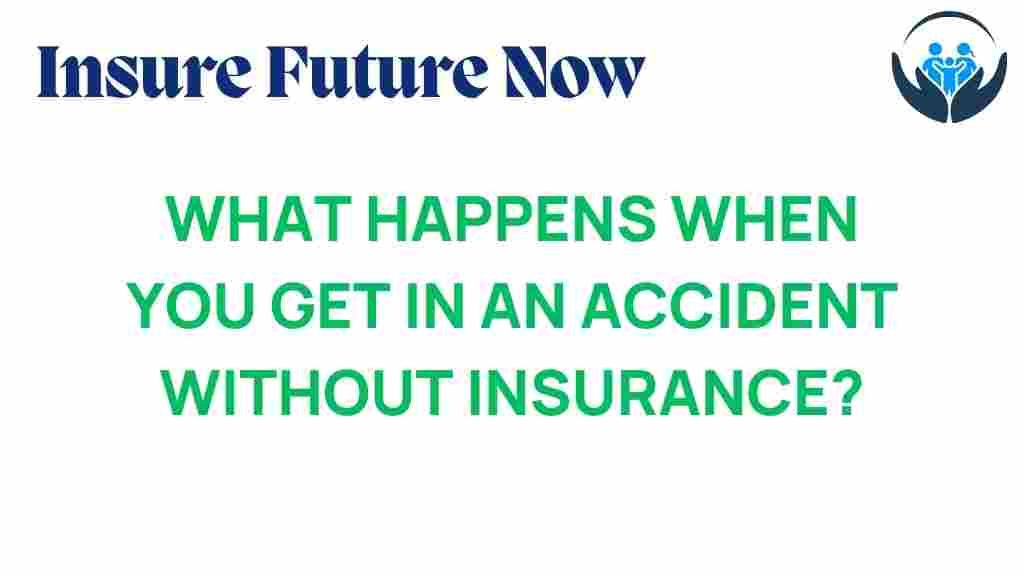The Consequences of Driving Without Insurance: What You Need to Know
Driving without insurance is a risky choice that many motorists make, often without fully understanding the serious implications. The consequences can range from legal repercussions to financial impacts, particularly if you’re involved in a car accident. In this article, we will explore the various consequences of being uninsured, the options available for coverage, and the importance of road safety.
Understanding the Risks of Driving Without Insurance
When it comes to driving, having insurance is not just a legal requirement in most states; it is also a critical safety net for drivers. Here are some key points to consider:
- Legal Repercussions: Most states have laws requiring drivers to carry a minimum level of insurance. Failing to do so can result in fines, license suspension, and even criminal charges.
- Financial Impact: If you’re involved in a car accident without insurance, you will be responsible for all damages and medical expenses out-of-pocket.
- Road Safety: Driving without insurance can lead to reckless behavior, increasing the risk of accidents and injuries on the road.
Legal Repercussions of Driving Without Insurance
The legal consequences of operating a vehicle without insurance can be severe. Here are some potential penalties:
- Fines: Many states impose hefty fines on uninsured drivers, which can vary widely based on state laws.
- License Suspension: Driving without insurance can lead to the suspension of your driver’s license, making it illegal for you to operate a vehicle.
- Legal Charges: In some cases, driving without insurance may result in misdemeanor charges, leading to potential jail time.
Understanding your state’s laws is crucial. You can find more information about state-specific requirements here.
The Financial Impact of Being Uninsured
The financial repercussions of driving without insurance can be devastating. Consider the following scenarios:
- If you’re at fault in a car accident, you will have to pay for the other party’s damages, which can be extremely costly.
- You may also be liable for any medical expenses incurred by others involved in the accident.
- Even if you’re not at fault, your lack of insurance can complicate claims and recovery processes.
In addition to immediate costs, you may face long-term financial burdens, including increased insurance premiums once you finally secure coverage.
Uninsured Drivers: A Growing Concern
The number of uninsured drivers on the road is rising, leading to increased risks for everyone. Here are some statistics:
- According to the Insurance Information Institute, about 13% of drivers are uninsured.
- In states with high uninsured rates, accidents can lead to significant financial strain on insured drivers who are involved in accidents with uninsured motorists.
Coverage Options: What You Need to Know
If you’re currently uninsured, it’s essential to explore your coverage options. Here are a few types of insurance to consider:
- Liability Insurance: This is the minimum insurance required in most states, covering damages to others in an accident you cause.
- Collision Insurance: This type of coverage pays for damage to your vehicle after an accident, regardless of who is at fault.
- Comprehensive Insurance: This covers damages to your vehicle from non-collision events, such as theft or natural disasters.
- Uninsured/Underinsured Motorist Coverage: This protects you in case you’re in an accident with an uninsured driver or one with insufficient coverage.
Choosing the right coverage is crucial for your safety and financial well-being. Be sure to compare policies and quotes from multiple providers to find the best option for you.
Steps to Take if You Are Involved in a Car Accident
If you find yourself in a car accident and you don’t have insurance, follow these steps:
- Stay Calm: Take a deep breath and assess the situation. Ensure everyone involved is safe.
- Call Emergency Services: If there are injuries, call 911 to get medical assistance on the way.
- Exchange Information: Gather contact and insurance information from the other driver(s) involved.
- Document the Scene: Take photos of the accident scene, vehicle damage, and any relevant details.
- Do Not Admit Fault: Be careful not to admit fault or make statements that could be used against you later.
- Seek Legal Advice: Consider consulting with an attorney, especially if the accident involves significant damages or injuries.
Troubleshooting Tips for Uninsured Drivers
For those who find themselves driving without insurance, here are some tips to help you navigate the situation:
- Get Insured Immediately: If you realize you’re driving without insurance, it’s crucial to obtain coverage as soon as possible.
- Communicate with the Other Party: If an accident occurs, remain respectful and communicate openly with the other driver.
- Consider State Assistance Programs: Some states offer programs to help uninsured drivers obtain affordable coverage.
The Importance of Road Safety
Driving is a significant responsibility, and road safety should always be a priority. Here are some tips for safe driving:
- Always wear your seatbelt.
- Stay alert and avoid distractions while driving.
- Follow speed limits and traffic signals.
- Avoid driving under the influence of alcohol or drugs.
Conclusion
The consequences of driving without insurance can be severe, impacting your finances, legal standing, and road safety. Understanding state laws and coverage options is crucial for every driver. If you are currently uninsured, take immediate steps to secure coverage and prioritize safe driving practices. Remember, the risks of being an uninsured driver far outweigh the costs of obtaining insurance. Protect yourself, your finances, and ensure the safety of everyone on the road.
For more information on car insurance and to find a plan that works for you, visit this resource.
This article is in the category Claims and created by InsureFutureNow Team
